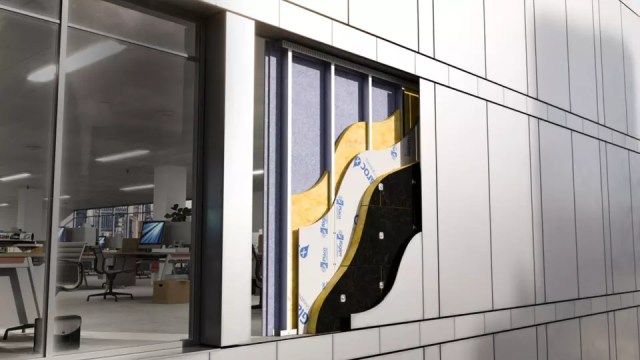CCPI mark for all British Gypsum systems covering 300 products

We are delighted to announce that all of our systems have now been awarded the Code for Construction Product Information (CCPI) mark.
Earlier this year, we announced that our non-loadbearing metal stud plasterboard partition systems, including shaft wall, had become one of the first products on the UK market to carry the CCPI mark.
Now six product sets have been validated by CCPI, a method developed by the Construction Products Association’s (CPA) Marketing Integrity Group to provide assurance that the product information is clear, accurate, accessible, up-to-date and unambiguous.
The six product sets listed cover 23 British Gypsum systems, incorporating 300 products.
The six product sets are non-loadbearing metal stud plasterboard partition systems, including shaft wall; non-loadbearing ceiling systems; structural steel encasement systems; ceiling systems below loadbearing timber joist floors; non-loadbearing wall lining systems and proprietary and non-proprietary lining systems incorporating Gypsum products, such as GypLyner Xternal, linings for timber frames and plastering systems.
Dave Robinson, Head of Technical Support at Saint-Gobain Interior Solutions, which includes British Gypsum, said: “We’re proud to be working proactively with the CCPI and welcomed the initiative with open arms and were keen to be one of the first to get involved.
“In essence, it provides a benchmark for manufacturers and signifies to customers that the product information they’re receiving is trustworthy and adheres to the high standards set out by the CCPI.”
Dave, who sat on the CPA’s Marketing Integrity Group, added: “In working with CCPI there was very little difference with what we were doing already. We have always set great store by our data integrity and we ensure that our test data is shared openly and transparently, as evidenced by the fact that we have been publishing the White Book for more than half a century.”
In order to ensure a ‘single source of truth’ for its test data, we created a sophisticated Product Information Management (PIM) system, which includes 13,000 test reports, with drylining system tests carried out at the independent, UKAS-accredited Building Test Centre. The PIM system means test data is always up to date, which is why we took the decision to stop printing the White Book, making it digital to ensure accurate, timely and accessible data.

Troy Moscato is a Scottish author, poet, and former journalist based in Edinburgh. He has published two collections of poetry inspired by the natural landscapes of Scotland. Previously, he worked as a freelance journalist for local publications and spent a few years as a writer-in-residence, conducting workshops on creative writing.




